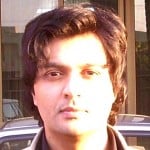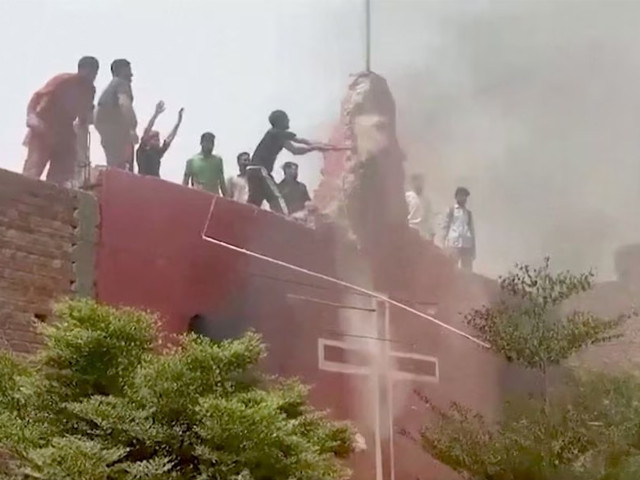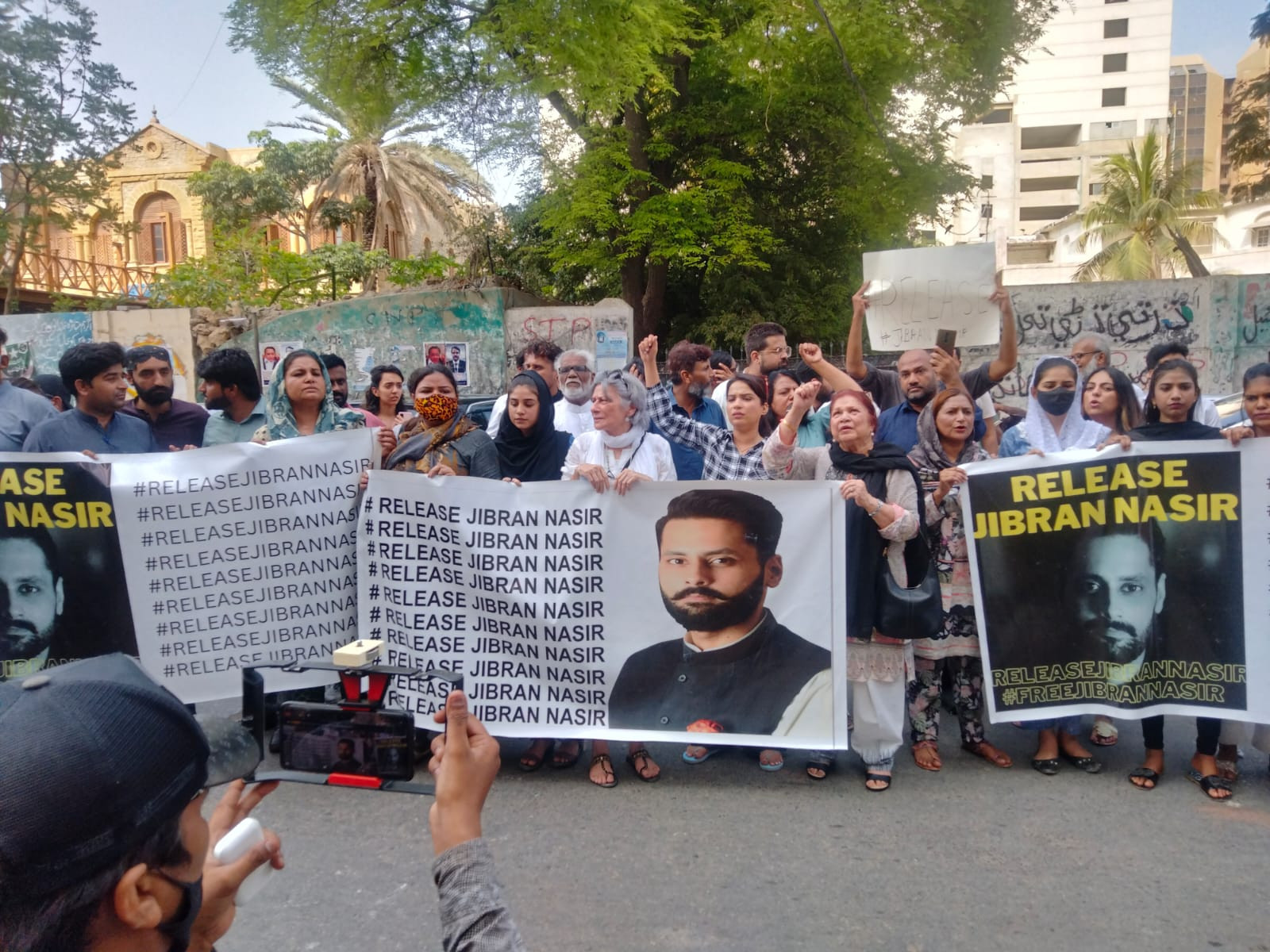
In defense of the status quo
A modern ethnically diverse state such as ours needs democracy. The media should criticize the government but it should not indulge in destabilizing it.
Right now, news of a possible regime change is dominating the mainstream media. Active enthusiasm in some quarters shows that euphoria after the elections of February 18, 2008 has fully subsided and has been replaced by plain disgust.
If the demographics of the wary public are to be taken into consideration, it is again some sections of the affluent middle class which are pressing for the regime change and are ready to support even unconstitutional means. However, this time the buck does not seem to stop at regime change as a sizeable number either wants democracy to be completely purged or at least temporarily suspended, to give way to an interim government composed of technocrats who would 'cleanse' the system and pave the way to eventual and 'real democracy'.
Honestly speaking the government has been incompetent. Despite having an ideological leaning towards PPP, there is no way I can defend it with respect to governance and competence though I would also add that media has selectively lynched PPP. Moreover the media has not given the PPP government the due credit with respect to an improved NFC award and the 18th amendment.
However, incompetence does not mean that public mandate should be thrown out of the window and an elected government should be sent home. These kinds of interventions seriously undermine the democratic system and do not allow the voting pattern to mature and become rational. Moreover, this does not actually punish incompetence as the voters tend to develop sympathies due to the unfair and untimely ouster of the government.
Do we really want democracy?
But then a substantial chunk of the media-savvy urban middle class is deeply skeptical of democracy itself.
What really worries me that it is just not the government alone but the entire democratic system which is under attack. Since the word democracy has politically correct connotations attached to it, therefore sometimes the opposition is subtle but you can still sense that it is there.
Generally the case against democracy is that due to illiteracy Pakistan is not ready for democracy. They claim that illiterate people cannot make a rational and informed choice. Moreover, politicians are 'corrupt' and use the public mandate as a justification for their excesses. According to the skeptics politicians are obliging and consequently good governance is compromised.
How legitimate are these concerns?
To begin with it is true that politicians are obliging but this phenomenon is culturally rooted. Pakistan is after all still an agricultural society with a social structure which thrives on contact building and obliging those contacts. This culture is apparently more prominent during democratic rule as people who have voted expect to be obliged in return. These expectations which are chiefly cultural adversely affect the governance quality and have given rise to merit violations in job allocations and awarding of contracts etc.
Politicians who are actually under pressure to oblige their voters, the army and even the opposition appear to be well insulated from such pressures. This apparent ‘non political” disciplined look creates the impression of honesty and impartiality.
However, a deeper look would blatantly expose this fallacy. Yes, the political class may have been obliging but so have the military governments. They may have shown some impartiality in the beginning but soon they were indulging in even blatant nepotism which has still not even come to light due to media censorship.
Why democracy is relatively less corrupt
What people often overlook is that political government always has some stake in maintaining a politically appealing image and in the medium to long term this stake ensures that it is responsive to allegations of corruption -provided we give it a chance to last more than two years.
Military governments do not feel the political heat and their excesses are simply not reported and even when these are reported by media, the reporters face the wrath of the establishment. Even a quasi political government which has a powerful army chief often oversteps its authority to indulge in excesses. The extraordinary control over the coercive power of the state ensures that the media is not able to freely disclose those excesses and thus creates this impression that perhaps such governments are not corrupt. Even if the media is allowed to report, as some say that during former president Musharraf’s regime it was, it does not have the same sort of access which it has during political governments.
Eventually a political government feels the heat and tries to rectify the issues. Right now I am aware that a lot of fuss is being made by some anchors about political government not 'honouring' the Supreme Court’s decisions. Yes, the government is showing reluctance but gradually is ceding and trying to at least partially oblige. Let me remind them that Musharraf regime by contrast simply dismissed the courts and put the judges under house arrest! And during Zia’s time, courts under pressure convicted Bhutto on flimsy evidence. Political governments no matter how 'corrupt' they are cannot just overrule courts the way military governments do.
A vote means a voice
A standard objection to democracy is that the voters in Pakistan are not informed and mature to keep a check on the government. Widespread low literacy is a fact in Pakistan and this fact is often used as a justification for claims that masses cannot be trusted with something as “sacred” and important as vote. More importantly it is argued by some that 'sophisticated' issues like foreign policy, fiscal policy etc need high degree of education on the part of the voter.
Here I have several objections, in addition to the fact that this opinion smacks of a condescending attitude towards the marginalized.
Firstly, in no system in the world do voters alone keep a check on the government. Voters mainly appraise a government’s overall performance. The check is kept by the media, civil society and other institutions. Fortunately, these institutions have developed considerably in recent times in Pakistan.
The poor and illiterate have to be given the right to vote to make them a stakeholder in the political system. Without their stake and participation, they will be further marginalized. It is their enormous stake which only democracy through universal suffrage ensures and which forces the government to be responsive to them. Yes, you can argue that they are not in a position to vote on complicated policy issues, but votes are seldom cast by anyone on policies. Votes are eventually cast on the actual performance of the government measured in terms of improving overall standards of living. The poor and illiterate are as qualified as anyone else to judge that.
Punishing them by taking away their right to vote will simply discourage the government in giving due attention to their livelihoods. It is democracy which through participation ensures that their problems are brought into notice. No technocratic government can be a responsive government without democratic process.
Governing for growth alone
I will supplement this with a historic example. Ayub's regime emphasized high growth rates but completely ignored the poor.
The decade of development ended up being the decade of marginalization as well. Development and industrial growth took place but without substantial improvements in the livelihoods of the poor. Since Ayub's regime was not democratic it was never concerned with whether the fruits of that high growth were equitably distributed.
Ultimately, Ayub's regime left a Pakistan polarized and the poor responded by participating in a popular movement against him. Democracy has this distribution effect which ensures that development is widespread. However it needs time which unfortunately we are not ready to give. I am surprised that often two years of democracy are compared to 10 years of Ayub or Musharraf’s tenures and then statistics which in any case are not comparable are thrown in.
On democracy and ethnicity
Lastly and perhaps most importantly, the defense of democracy and the continuation of a normal democratic process is needed to preserve the ethnic fabric of our country. A modern ethnically diverse state needs democracy. Democracy is not merely a system of governance, it is a proper forum where dialogue can take place between various ethnicities and terms can be negotiated and renegotiated. No dictatorship or for that matter unelected technocratic government can tap those voices for discourse at the national level.
Ethnic diversity needs uninterrupted democracy. Sabotaging the process merely increases the ethnic rift when the President of the country hails from a small province. Let’s not forget that Ayub Khan’s tenure instilled hatred in the Bengalis while Muharraf’s tenure angered the Baloch.
It is important to not get carried away with the rhetoric of anchor persons on television. What the media forgets is that by undermining democracy they are actually paving the way for the curtailment of their own freedom of expression as well. A modern state needs democracy. Yes, the media should criticize the government but it should not indulge in destabilizing it. Let the democratic process continue. For God's sake show some maturity!




COMMENTS (4)
Comments are moderated and generally will be posted if they are on-topic and not abusive.
For more information, please see our Comments FAQ